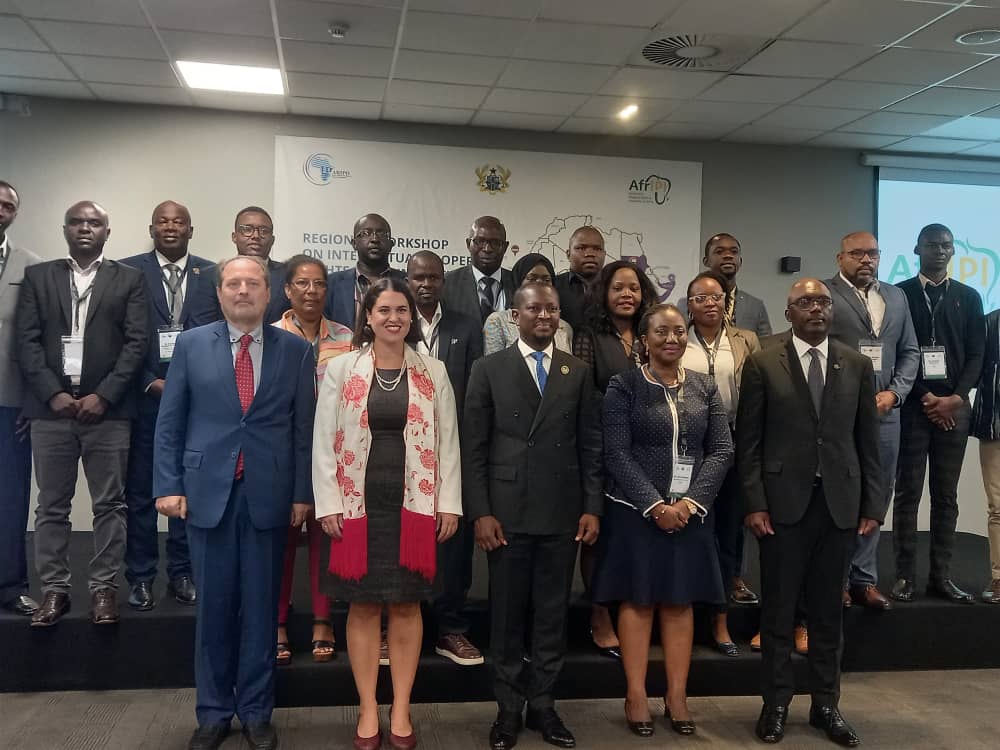By Emelia Nkrumah
Accra, Oct. 6, GNA – The African Regional Intellectual Property Organisation (ARIPO) in collaboration with the Intellectual Property Rights and Innovation in Africa (AfrIPI) has organised a Regional Workshop on Intellectual Property Rights and Innovation in Ghana.
The three-day workshop was in partnership with the Registrar-General Department to promote intellectual property rights and innovation in ARIPO member states.
It is also to raise awareness about the significance of intellectual property, particularly how it fuels technology innovation that drives human progress and creates an arts scene that enriches lives.
The workshop brought together stakeholders across Africa.
Mr Alfred Tuah-Yeboah, Deputy Attorney-General said Intellectual Property Rights (IPR) served as the key player in securing the integrity of innovation and formed the bedrock of innovations by providing innovators and creators the avenue to safeguard their inventions, literary works, trademarks, and designs, among others.
He added that “In recent times enterprises and economies are increasingly using innovation to drive growth, we have found out that asset creation is increasingly shifting from tangibles to intangibles.
“Intangible assets such as patents, trademarks, industrial designs and trade secrets among others are estimated to be worth more than 70 trillion US dollars.
“This recognition of IP as a critical enabler for innovation and creativity calls for the need for member states of ARIPO to incorporate IP as part of the development journey towards economic and sustainable growth.”
According to him, amid capturing the Innovative capabilities of 132 economies worldwide, “we find that in Sub- Saharan Africa, Mauritius (57th) leads the region followed by South Africa ranked 59th followed by Botswana ranked 85th. Most of African economies were found in the ranks between 70 to 132 and Ghana came in at 99th.”
He noted that the recent WIPO survey of attitudes towards IP around the world indicated that respondents in all regions of the world see IP as a key tool for ensuring fair rewards for innovators, adding that it was in the light of the above findings, that Africa as a region needed to build capacities in the IP ecosystem to bring IP closer to businesses, research institutions, women and the youth.
At the national level, Mr Tuah-Yeboah said the IP office in implementing the National IP Policy and Strategy, would continue to roll out activities aimed at creating a conducive environment in which creativity and innovative activities would flourish in the various research institutions, universities, and the business communities.
He, therefore, urged member States to initiate steps to invest in education, research, and development capabilities.

“I encourage you all to also consider the emerging IP ecosystem , where national IP Offices are rethinking of their roles as IP Offices and seeking to add value beyond their traditional roles of passive recipients of IP applications, saying it is now imperative that for Africa to shine, the IP Offices must move towards an agency that propels innovation and serves as a bridge to connect all the different players in an innovation ecosystem.”
Mr Bemanya Twebaze, Director General of ARIPO, said the workshop aimed at raising awareness about the significance of IP, particularly how it fuelled the technological innovations that drive human progress and the creative arts scene that enriches lives.
“By tapping into what we as humans need at an individual level, exploring the shifting values within our communities, and investigating existing barriers, we can then understand the drivers of innovation growth in our context.”
He added that “we all have a shared responsibility to adopt the UN Sustainable Development Goals (SDGs) and the African Union’s Agenda 2063. These instruments serve as a blueprint and master plan of transformation, placing innovation at the front and centre of the required solutions.
“We need them as a guide to improve our countries’ capacity to create jobs and economic growth while solving the social, economic and environmental challenges of our time.”
According to him, ARIPO, would continue to work with governments, industry, academic and research institutions not only to expand the participation of everyone in the IP ecosystem but also to identify champions to give them the platform to succeed through training in relevant skillsets across the board.
Mr Twebaze encouraged participants to continue to navigate the delicate balance between protecting innovations and the limitless potential for human innovation.
Ms. Aida Galindo, Project Leader, AfrIPI, expressed her enthusiasm for the workshop, stating, “We are delighted to collaborate with the Registrar-General’s Department, Ministry of Justice Ghana and ARIPO, in organising this workshop.
“The workshop will provide valuable insights into the practical applications of IPRs and their role in fostering technological advancement and boosting the income-generation capacities of businesses, including MSMEs,” she added.
She added that Intellectual Property Rights (IPR) were increasingly becoming important to all economies “”so these rights can be leveraged to address some of the continent’s major developmental needs.”
Mrs Grace Ama Issahaque, Chief State Attorney of Registrar-General Department, Accra said data from WIPO reflected that more people were using the IP system more than ever, adding that IP applications over the past five years had increased worldwide.”
She indicated that innovation was increasingly being generated from developing countries and emerging economies and it was time that IP offices demystify IP and help innovators and creators gain practical IP skills.
“For us in Ghana, IP landscape is not lost on us, and we will continue to seize every opportunity to undertake reforms to improve the IP landscape.”
She said her outfit would continue to collaborate with ARIPO Secretariat, donor partners and stakeholders where necessary to provide the forum to raise awareness and encourage the use of IP as a tool for innovation, creativity, and intellectual property.
GNA